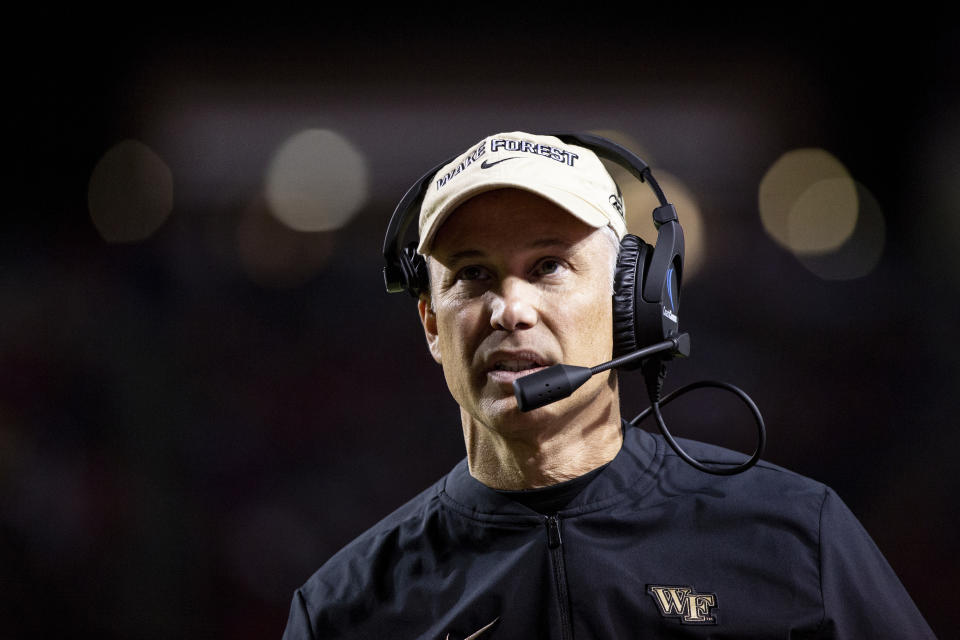Wake Forest head coach Dave Clawson says he'll spend entire football season isolated from his wife
As sports leagues across America move closer and closer to playing games despite the ongoing coronavirus pandemic, some people are having to make awful choices about their family and careers.
The latest example is Wake Forest head coach Dave Clawson, who said Thursday that he will be isolating from his wife, Catherine, when the Demon Deacons open camp on July 12, according to ESPN’s David M. Hale. Clawson doesn’t expect to return home until the season ends.
The isolation is necessary as doctors reportedly told Catherine, a cancer survivor, that her reduced white blood cell count puts her at a high risk of complications if she contracts COVID-19. She reportedly underwent chemotherapy and radiation treatments for breast cancer in 2017.
So while Clawson’s wife is now cancer-free, she is among the many cancer survivors who would face an increased chance of serious medical problems if exposed to the coronavirus. Clawson’s job makes that latter part a significant possibility.
“When I’m working on a daily basis, coaching 110 to 120 players and having a staff of 50, I don’t know how I could go home at night and honestly tell my wife I couldn’t have come in contact with [the coronavirus],” Clawson said. “I love coaching, but I love my wife more. There’s no way I’m going to do anything that would put her at risk.”
Sadly, Clawson is not the only person in the sports world facing this kind of choice. He said several members of his staff are planning to take similar precautions.

Sports or family? It’s now a choice for some coaches and players
Penn State coach James Franklin said an episode of HBO’s “Real Sports” on Tuesday night that his family will spend the season in Florida while he stays in State College. The reason is his daughter’s sickle cell disease, another medical issue putting her at increased risk of COVID-19 complications.
“I have two daughters. My one youngest daughter has sickle cell disease so it’s changed the dynamics of our family,” Franklin said. “My wife and kids are going to stay in Florida for the season and I’m going to be in Happy Valley just because we think that’s the right thing to do for my daughter with sickle cell.”
Meanwhile, in the NBA, Los Angeles Lakers guard Avery Bradley has said he will skip the remainder of the season because his eldest child has a history of respiratory issues. Other players, like Willie Cauley-Stein and Trevor Ariza, have chosen to opt out because they wouldn’t be able to see family in the bubble.
In MLB, players have been told they can sit out the season and receive full pay if they are at higher COVID-19 risk, but it’s less clear for players with high-risk family members like Mike Trout, who is expecting a child this summer, and Sean Doolittle, whose wife has asthma.
Deciding to play sports in the middle of a pandemic means dealing with these choices. States, including sports hot-beds like California and Florida, are seeing all-time highs in daily coronavirus cases, but leagues are still planning their seasons. They are exercising some common-sense precautions like not allowing fans into games (for now), but not enough to eliminate risk like a true bubble league would.
This was all inevitable when sports leagues, for the most part, said that A) they couldn’t afford to wait until coronavirus rates go down to play games and B) some players and staff being exposed to the coronavirus was acceptable as the cost of doing business. And it’s these players and coaches, and their families, who are paying the price.
More from Yahoo Sports:

